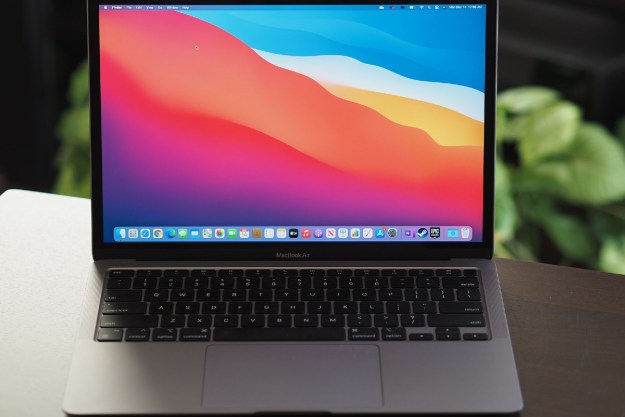It’s tough to stand out today amid the sprawling universe of podcasts. More than half a million active shows are available on Apple Podcasts alone, and that number is only growing. Which raises the question, what more can be said?
The answer is a lot more, according to James Ryan, a Ph.D. student at the University of California, Santa Cruz, whose artificial intelligence-powered podcast could see new stories told ad infinitum. As part of Ryan’s thesis, the Sheldon County podcast combines computer-generated text with procedural narratives, all delivered through a synthesized voice that serves as a constant reminder of the tale’s artificial origins.
“Sheldon County is a generative podcast about life in a simulated American county that inhabits your phone,” Ryan told Digital Trends, recounting part of the podcast’s first episode, which centers around a restless “nothing man” alone in 1840s Sheldon County. “More specifically, it is a collection of podcast series, each of which is procedurally generated for a particular listener to recount characters and events that are unique to that listener’s podcast.”
To populate his countless Sheldon Counties, Ryan developed a program called Hennepin, which generates a slew of characters and events.
“Characters have personalities, aspirations, beliefs, and value systems,” Ryan said. “They may interact with one another, and change the simulated universes in which they live, by autonomously taking action.”
But a hodgepodge of details doesn’t tell a story, so Ryan uses Hennepin’s sister system, SHELDON, to string together the medley of descriptors into a more cohesive narrative.
“SHELDON has three jobs,” he said, “recognize interesting storylines that have emerged in the county at hand, produce textual scripts for episodes that express those emergent storylines, and make calls to the Amazon Polly speech-synthesis framework to generate narration audio, given the textual scripts.”
Generative media has plenty of intrigue but still a lot of skepticism, according to Ryan, particularly when it comes to video games. Take the highly anticipated, procedurally generated game No Man’s Sky, which promised — but ultimately failed to deliver — infinite depth of exploration. Meanwhile, narratives and soundbites are assigned to human writers and voice actors.
But Ryan also thinks we’re nearing a watershed moment that may see storytelling tasks more readily handed over to algorithms. And, with Sheldon County, he wants to demonstrate that it’s possible.
“One of my aims with this project is to evangelize generative media, and to show that procedural narrative, in particular, can actually be compelling,” he said.
Editors' Recommendations
- Clever new A.I. system promises to train your dog while you’re away from home
- Fake news? A.I. algorithm reveals political bias in the stories you read
- A.I. can remove distortions from underwater photos, streamlining ocean research
- A.I. musicians are a growing trend. What does that mean for the music industry?
- Create apocalyptic A.I. worlds with this camera app that removes people from pics


